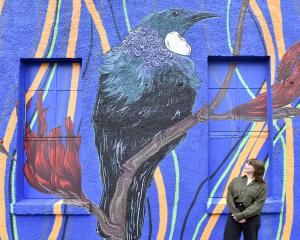Mumps cases in Otago have spread to the point where Public Health South is now working to manage the infectious disease, rather than contain it.
The outbreak is believed to follow outbreaks in Auckland and parts of the Pacific.
Since late 2016, there have been more than 1662 "probable or confirmed" cases of mumps notified nationwide, and Public Health South has recorded an increase in cases in Dunedin, Oamaru and Queenstown.
As a result, Medical Officer of Health Dr Keith Reid said the organisation had moved to a "manage it" phase.
"This means that there are now too many local people with mumps for case-by-case investigations to control the outbreak, and efforts will focus on vaccinating populations at risk."
The MMR vaccine is free and is available from general practices and student health centres.
From January 1, 2017, to yesterday, 195 cases of mumps were notified in Otago, 90 of those were confirmed, he said.
"Many of the Dunedin cases are connected to the University of Otago and associated with student travel to areas affected by mumps outbreaks.
"Cases in Oamaru are associated with travel to overseas areas affected by mumps outbreaks and by subsequent local transmission within a school community.
"Queenstown cases have been connected to several workplaces and travellers."
Contact tracing will now be patient-led and Public Health South has developed a range of resources to support clinicians and patients with their diagnosis and management.
Dr Reid said mumps had an incubation period of 12-25 days, and was spread through saliva or mucous droplets (from coughing or sneezing). It could be spread via face to face contact within a metre, or by touching an object infected from saliva or mucous, such as shared drinks and food.
"You won't get it walking past someone on the street with mumps, but if you are not immune and you spend time in close proximity with someone who is sick and infectious, you are at risk.
"Those most at risk are people from countries where the MMR vaccine is not available, including some Pacific Island nations such as Tonga and Fiji, and people whose vaccination schedule is not up to date."
Infected people are infectious from two days before swelling appears until five days after, he said.
Early symptoms included fever, headache, muscle aches, tiredness, loss of appetite. The salivary glands on one or both sides of the face, cheeks or jaw might become swollen and sore after two days.
Most people recover from mumps. However, some can develop rare complications, including pain and swelling in the testicles for men and adolescent boys, which can result in infertility. Females can experience ovarian inflammation, and there is a risk of miscarriage for pregnant women in the first three months.
In some people, mumps can also cause permanent hearing loss, and in rare cases it can lead to inflammation of the brain and surrounding tissue (meningitis).
"Mumps is usually a mild but unpleasant illness. Fortunately, complications are rare," Dr Reid said.
If you suspect you have mumps, call Healthline (0800 611-116) or your GP.












